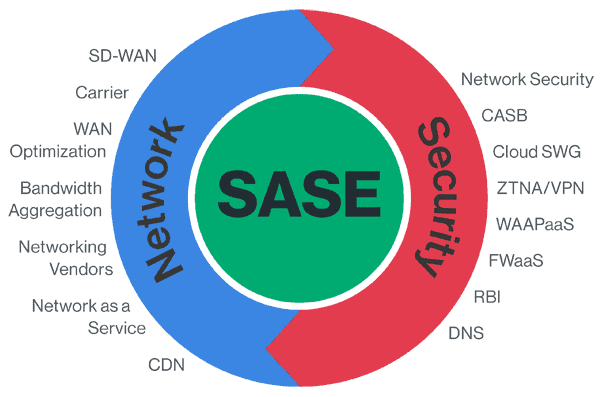Optimizing Construction Accounting Through AI and Automation Technologies
You know the drill. Construction firms keep wrestling with money management nightmares that old-school accounting just can’t crack.
Invoices pile up for weeks. Manual data entry?
That’s a minefield of expensive mistakes. And when you can’t see what projects actually cost in real-time, profits vanish before you notice.
Here’s the good news: AI and automation are completely reshaping how you handle financial operations.
We’re talking faster processing, fewer errors, better cash flow—the works. This guide breaks down how you can actually implement these tools, which platforms work best, and what real construction companies are doing right now to drag their accounting into the modern era.
The Current State of Construction Accounting Challenges
Construction accounting isn’t like running a coffee shop’s books. The project-based chaos creates financial demands that generic accounting systems simply weren’t built for.
Project-Based Accounting Complexities in Construction
Try juggling ten active job sites at once. Each one needs its own costing, retention tracking, and progress billing. It’s a mess. Companies with fewer employees are taking advantage of features many cloud-based ERPs have to offer to automate financial data, allowing for increased accuracy of compliance requirements and timeliness of payment.
Then there’s subcontractor payments. When you’ve got dozens of vendors scattered across different sites, keeping everyone paid becomes a full-time nightmare. And don’t get me started on lien laws and bond requirements—every state has different rules. Manual systems? They buckle under this complexity.
Understanding AI for Accounts Payable in Construction
The move toward ai for accounts payable represents something bigger than just automation. We’re talking about intelligent systems that learn and improve, not robots following the same script forever.
Core AI Technologies Transforming Construction Accounting
Machine learning watches your patterns and starts auto-categorizing invoices with the right job codes. Natural language processing reads through contracts and pulls out payment terms without anyone touching it.
Platforms using ai invoice automation deploy computer vision and OCR to turn paper invoices, scribbled receipts, and whatever random formats your subs send into digital data. Predictive analytics look at project phases, payment history, and seasonal trends to forecast exactly when you’ll need cash.
How AI Tools for Accounting Differ from Traditional Automation
Traditional automation runs on rigid if-then rules. Change one thing, and you’re manually updating exceptions all day. Ai tools for accounting actually learn from your firm’s unique data patterns and get smarter over time.
They understand construction-specific documents—lien waivers, payment apps, the whole nine yards. Every transaction makes the system more accurate. It’s not static. It evolves.
AI Invoice Processing: The Foundation of Modern Construction AP
Automated capture grabs invoices from emails, vendor portals, even phones your field guys carry. The system handles whatever document format vendors throw at you—no begging everyone to use your template.
Three-way matching happens automatically: invoice, PO, receiving document—all compared instantly. When something doesn’t match? The system routes it to the right approver based on your project hierarchy and dollar limits.
Grasping how AI works is great, but choosing the right construction-specific platform that harnesses this tech is where implementation gets real.
Essential AI Software for Accounting in Construction Operations
Picking the right ai software for accounting matters enormously because construction has complexities that generic business accounting can’t touch.
AI-Based Accounting Software Platforms for Construction
When you’re shopping for accounting tech, ai based accounting software options like Procore, Sage 300 CRE, and Viewpoint dominate the enterprise space for multi-project environments. Mid-market? Foundation, ComputerEase, and Jonas Premier deliver serious functionality without requiring a dedicated IT department.
Newer AI-native players—Briq, Stampli, AvidXchange—focus exclusively on intelligent automation. The integration piece matters hugely here: how smoothly does it connect with your existing construction management systems?
Specialized AI Tools for Accounting Functions
Expense management tools let your crews photograph receipts on site, killing manual entry for field purchases. Vendor management platforms automate onboarding and track whether insurance certificates and licenses are current.
Payment optimization identifies early-pay discounts worth taking. Fraud detection flags weird patterns before they become disasters. Tax compliance automation handles the multi-state reporting that comes with working across state lines.
Mobile and Field-Connected AI Accounting Solutions
Real-time expense capture means your field teams snap receipt photos immediately. Digital receipt management syncs to the cloud, so nothing gets lost in someone’s truck.
Mobile approval workflows? Your PMs can review and approve invoices from a job site, their couch, wherever. GPS-enabled expense verification confirms mileage claims and site visits automatically.
With tons of AI accounting platforms available, selecting tools is only half the battle—implementation needs a structured roadmap that minimizes chaos while maximizing adoption.
Implementing AI Accounts Payable Automation in Construction Firms
Successful ai accounts payable implementation requires a structured approach addressing both tech requirements and the human side unique to construction operations.
Assessment and Planning Phase
Map your current processes to find where automation delivers maximum bang for your buck. Estimators are using AI to scour historical cost data from previous work, study current market trends and project specifications to assist their pricing strategies when bidding work.
Build ROI calculations that quantify time savings and error reduction. Get buy-in from both office staff and field teams who’ll actually use these systems.
Data Preparation and System Integration
Clean up your chart of accounts so AI can categorize transactions properly. Standardize vendor master data—names, payment terms, everything—before you migrate.
For maximum efficiency, ai software for accounting needs clean historical data to train its machine learning models. Map integration points between your ERP and construction management software carefully to avoid creating data silos.
Phased Implementation Roadmap
Start with a pilot on one project or division. Test before you go all-in. Training needs to account for wildly different tech skill levels across your team.
This industry historically resists new tech, so your change management approach matters. Define success metrics clearly so everyone knows what winning looks like.
Once your foundational AI accounts payable system is running, you can tap advanced capabilities that move beyond invoice processing to transform strategic financial decisions across projects.
Measuring ROI and Performance Metrics
Proving AI’s value means tracking specific metrics that show stakeholders it’s worth the investment.
Time Savings and Efficiency Gains
Invoice processing drops from hours to minutes. That’s an immediate productivity win. Watch how your team reallocates time from mindless data entry to actual analysis.
Approval cycles accelerate through automated routing. Month-end closes compress dramatically, giving your financial team bandwidth for strategic planning instead of transaction grinding.
Cost Reduction and Error Prevention
Eliminating manual data entry wipes out costly mistakes that wreck project margins. Capturing early payment discounts recovers savings manual processes miss because timing is off.
Avoiding late fees saves money and keeps vendor relationships healthy. Staffing analysis shows how automation lets smaller teams handle growing volumes without proportional headcount increases.
Benchmark metrics provide context, but nothing beats seeing AI’s impact through real applications across commercial developments, infrastructure projects, and everything in between.
Common Questions About AI in Construction Accounting
What’s the typical cost for implementing AI accounts payable in construction?
Budget $10,000 for small contractors, $100,000+ for large firms, depending on transaction volume and integration complexity. Most see payback in 6-18 months through labor cost reduction and error prevention.
Can AI systems integrate with existing construction management software?
Most modern AI accounting platforms offer API connections, CSV imports, or direct database integration to popular construction software. Real-time sync keeps financial data current everywhere without manual intervention.
How accurate is AI invoice processing compared to manual methods?
AI systems hit 95-99% accuracy versus 70-85% for manual processing. They learn from corrections and improve continuously, while manual processes maintain consistent error rates forever.
Final Thoughts on AI-Powered Construction Accounting
Construction firms implementing AI and automation gain real competitive advantages: faster processing, fewer errors, better cash flow visibility. This transformation isn’t just about efficiency—it’s survival in an industry where margins are razor-thin and delays are catastrophic. Starting with accounts payable automation delivers quick wins that build momentum for broader digital transformation. The question isn’t whether to adopt these technologies. It’s how fast you can implement them before competitors gain an advantage you can’t overcome.





